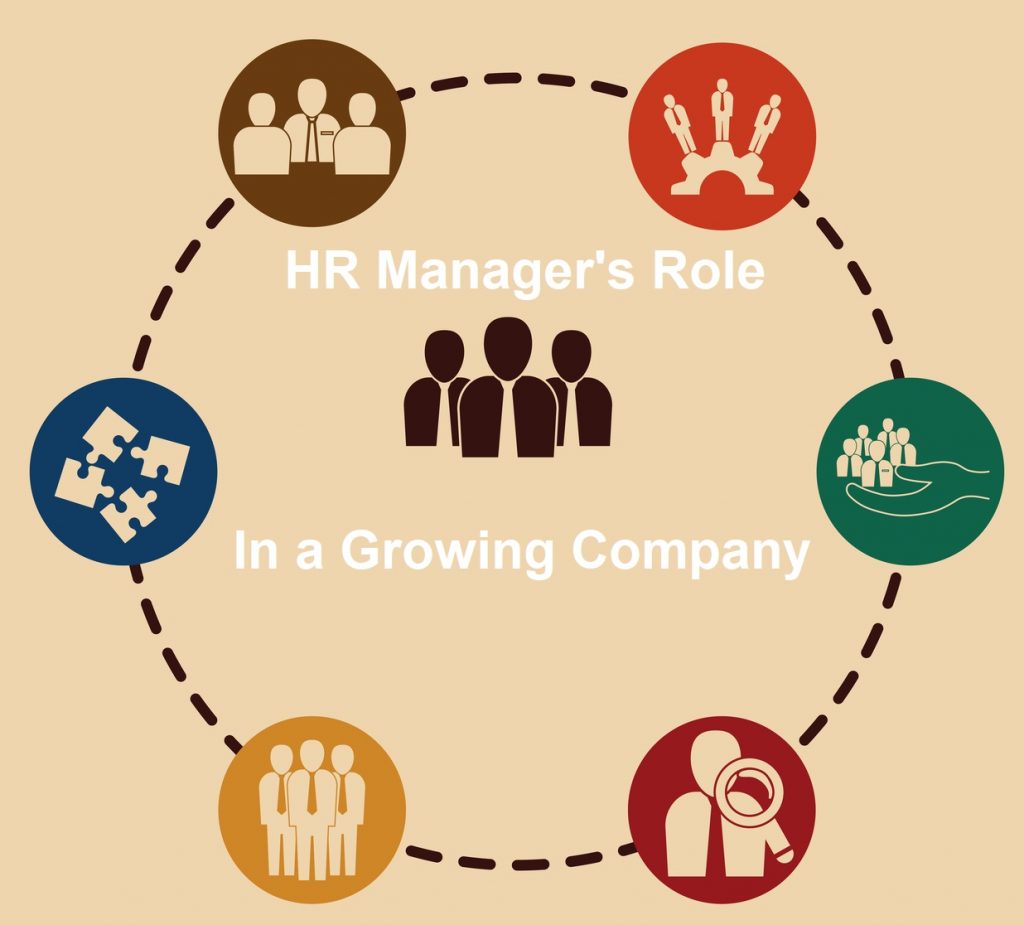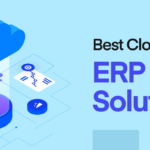Although artificial intelligence has greatly reduced the workloads of employees, the importance of human resources is irreplaceable. So no thriving workplace can be imagined without having effective human resource managers.
If you’re a growing company and experience a high employee turnover, it will be impossible to create a stable workplace. Having an efficient HR manager can save you through talent acquisition, retention, development, performance management, conflict resolution, and more.
There’re several roles and responsibilities of any HR manager. In this article, we’ll talk about the 12 most important HR manager roles and responsibilities in growing companies. Get started!
How Important Is the Role of an HR Manager in a Company

HR manager helps improve the strategic management of a company. They also take care of the wages and salaries of the employees. It is an essential task for the HR Manager to analyze the benefits of the company as well.
Managing the company risk and ensuring safety is also an HR manager’s concern in a company. All the company liability issues are also handled by the HR Manager.
The HR manager also manages the training and skill development of new or old employees in a company. They also keep in mind employee satisfaction as well manage the new recruitment. It includes the whole hiring process in the company as well. Maintaining the company’s legal matters, including the tax payment
HR Manager Roles And Responsibilities in a Growing Company
Whether you are looking for an HR manager or trying to be one, the following roles and responsibilities must be present in the person.
1. Recruitment and Talent Retention

An important responsibility of an HR manager is to manage the recruiting process to meet the company’s hiring demand. They explore various channels like job boards, social media platforms, and professional networks to collect a diverse pool of talented candidates.
The best ones are selected carefully through various metrics and offered relevant positions. Besides, HR managers take necessary arrangements to retain those for a long time who are deemed extraordinarily talented.
2. Create and Design Job Descriptions
HR managers are responsible for designing job descriptions that reflect the job duties, tasks, and responsibilities for each position. To craft the perfect job description, managers should explore what tasks and assignments are performed in particular roles belonging to the same industry.
This will help HR managers decide the standard salary range, duties, and responsibilities for particular job roles. They can also realize if any additional resources like tables, chairs, cupboards, laptops/desktops, etc., are necessary.
3. Workforce Planning and Scheduling
This is a strategic part of human resource management. This analyzes the current and future needs HR needs of an organization to maintain its work speed and productivity. He has to sit with all the team leaders individually to know if they currently have enough members.
They must be able to anticipate if the teams or organization will need new resources in the future. Accordingly, they should carry out a calculation in advance.
4. Onboarding and Training
Onboarding is the process of orienting new recruits to the organization. It allows them to get introduced to others and adjust to the new environment. This process starts right from the moment employees accept the job offer. In addition, HR managers must check if the new and existing employees need any training sessions.
They should check employees’ working history, performance metrics, and adaptability to figure out for which particular skills and departments they need training.
5. Performance Evaluation and Management
Without performance evaluation, you can’t make sure whether employees are giving their full potential to the organization. Moreover, this will check if you are properly utilizing their skills and potential. If the report is negative, HR managers must bring changes to their managerial strategies.
However, this is often seen that even after tremendous efforts, organizations cannot receive the expected output from some employees. In this case, HR managers can decide to fire and replace them with new resources.
6. Managing Employee Payroll, Benefits, and Leaves

HR managers work as the guidance and pathfinder of the company’s employee benefits and payroll management system. They normally come up with a certain strategic compensation structure based on the performance of the employees.
Even in the case of ensuring health benefits, HR managers need to look after any combined facilities available for them. So that they can negotiate it for the employees, monitoring the family and Medical Leave Act Compliance. As far as leave is concerned, it is provided to each employee based on the leave policy of the company.
7. Building Dedication and Commitment
It is also the duty of an HR manager to advise the strategies that can effectively improve the dedication and commitment of the employees. Based on the qualifications employees are appointed to various positions that suit them.
So that once they are hired, those employees enjoy doing the job that they are assigned. This puts the employees under pressure by the HR manager to do well improving their dedication level and commitment in getting their job done properly.
8. Discussing Issues and Conflicts
Roles of an HR manager is also to address any issue that occurs within the company or employees. They are normally expected to come up with a strategic plan to attend and resolves those issues. There can be issues related to benefits packages offered to the employees, hence it requires constant assessment by the HR manager to avoid any sort of conflicts between them.
Regular assessment to handle these issues or any conflicts related to employees increases the retention rate in the company. So, therefore, it is an important role that a skillful HR manager needs to play in the company.
9. Recognition and Reward Systems
Recognizing employee performance and rewarding them is a new addition to modern-day human resource management. These help in motivating employees, boosting their morals, and commitment to the work, leading to improved productivity and performance.
This can contribute a lot to employee retention and talent management. HR managers can filter out the best performers in each quarter based on performance evaluation reports and taking feedback from team leaders.
10. Compliance with Rules and Regulations
HR managers are responsible for ensuring various legal and legislative laws in workplaces. Some most mentionable of them are labor law, anti-discrimination law, health and safety law, paid medical leave, employee benefits, termination, provident fund, pension, immigration authorization, etc.
Local governments are often seen making occasional changes to these policies. It is the responsibility of managers to keep themselves informed of these issues and manage the workforce accordingly.
Get an Efficient HR Manager to Keep Your Company on Track
Each company requires HR managers with several different roles and responsibilities to fulfill. So for any company, it is essential to get an HR manager. And someone who understands their HR Management roles and responsibilities in that particular company quicker.
To build an efficient team, having a professional HR department is really an imperative part of a company. Not just having an HR department to show off but actually, a department that makes a difference and understands the HR Manager’s roles and responsibilities efficiently.
Therefore, to handle all the important Human Resource related tasks, you need well-trained individuals. HR managers are not born, you need to develop special skills in this regard by educating yourself and putting yourself in tough situations in managing employees.
So a company should always hire an HR Manager who has great interpersonal skills in being able to operate & manage the employees with utmost care and sincerity.
Closing Ups for HR Manager Roles and Responsibilities

If you are a company owner looking to automate the HR department in your WordPress, then there are a number of HR management tools available in the market. One such highly efficient and powerful tool is WP ERP.
Not just the HR department, with WP ERP you can manage your CRM and Accounts departments in one place. A very powerful all-in-one ERP tool for your HR manager to work with.
Still not sure about choosing an ERP solution? Then come, take a look at this free demo of WP ERP, and decide for yourself.
And if you enjoy it so far, you can get the complete WP ERP deal from here. Or if you only require the HR, CRM, or Accounting module individually then you can get that too.









Thank You for the information.
You’re most welcome
What are the user roles available for HRM??? For example I want to be able to create custom roles for supervisor etc, so that when stuff like reimbursements, leave approvals etc, goes through a 2 step approval process, the supervisor then finally the manager.
In WP ERP, you will have 2 user roles in HRM,
01. Employee
02. HR Manager
If you want to add any custom roles with WP ERP, then you might need to hire some professionals from the marketplace or you can contact the “weLab” team with your proposal. As we are not providing any customisation at the moment.
Unfortunately, WP ERP doesn’t have 2 step approval process by default. For reimbursement, the Accounting Manager and the admin can approve or create it.
As for the leave approvals, the HR Manager and the admin both can approves it. You can check out this link (https://wperp.com/docs/erp-pro/user-capping/#for-hrm-module) on how the user count works in WP ERP for your better understanding.
Thanks
Hello, I want to do work in a HR field but nobody give me chance. They want experienced person, but whenever no one give chance to someone how can they get experience .
Hello,
Thank you for sharing your concerns. It’s a challenging situation faced by many freshers, and I understand your frustration. Here are some suggestions to increase your chances of breaking into the HR field:
Networking: Attend HR-related events, workshops, and conferences. Connect with professionals in the industry through platforms like LinkedIn, and engage in relevant discussions.
Internships or Volunteering: Look for internships or volunteer opportunities in HR roles. These experiences, though they may be unpaid, can help build your resume and provide you with practical experience.
Additional Certifications: Pursue HR-specific certifications, such as the aPHR (Associate Professional in Human Resources) or other industry-recognized certifications to strengthen your skills and resume.
Emphasize Relevant Skills: Highlight any transferable skills you have acquired from previous roles or educational experiences. Skills like communication, problem-solving, and teamwork are valuable in the HR field.
Keep Learning: Stay updated on the latest HR trends and best practices through online resources, blogs, podcasts, and professional groups.
Hope these tips will help you to enrich your journey at HR sector!
This blog tells us the Crucial HR Manager Roles And Responsibilities In A Growing Company
Thanks for the compliment.
Do subscribe to our newsletter for more articles, new updates, tutorials like this one. https://wperp.com/blog
It’s so crucial for businesses to understand the importance of effective HR management, and your article breaks it down brilliantly.
Thank you for emphasizing the significance of effective HR management. Your insights are greatly appreciated!